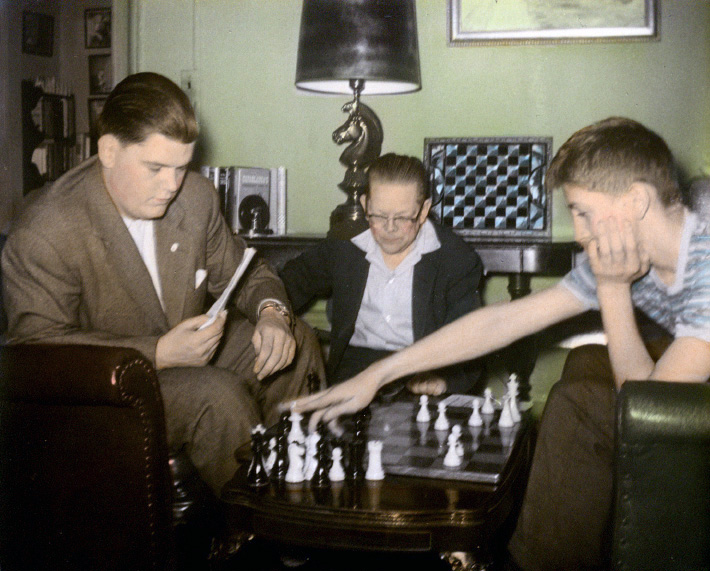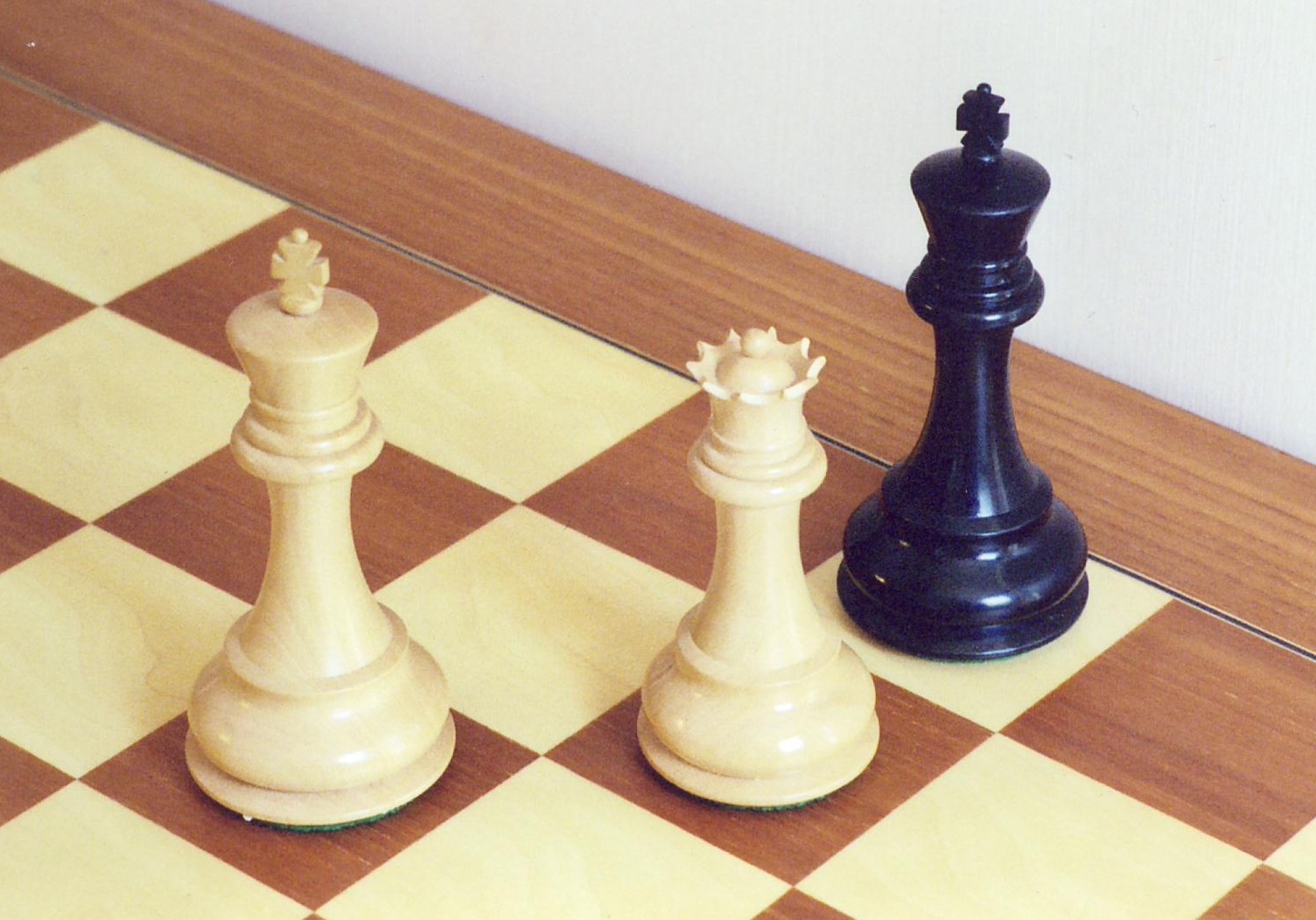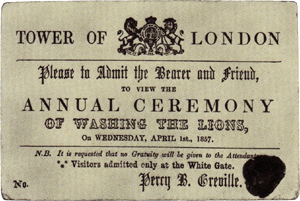|
List Of World Records In Chess
The world records in chess listed here are achieved in organized tournament, match, or simultaneous exhibition play. Game length records Longest game The longest tournament chess game (in terms of moves) ever to be played was Nikolić–Arsović, Belgrade 1989, which lasted for 269 moves and took 20 hours and 15 minutes to complete a drawn game. At the time this game was played, FIDE had modified the fifty-move rule to allow 100 moves to be played without a piece being captured in a rook and bishop versus rook endgame, the situation in Nikolić versus Arsović. FIDE has since rescinded that modification to the rule. The longest decisive tournament game is Danin– Azarov, Turnov 2016, which Danin won in 239 moves. In the 9th round of THT Extraliga (highest Czech team league), Danin needed to win his game to make the match end in a 4:4 draw. Although he managed to do so, his team (TŽ Třinec) was relegated from the highest league in the end. The second-longest decisive tour ... [...More Info...] [...Related Items...] OR: [Wikipedia] [Google] [Baidu] |
Chess
Chess is a board game for two players, called White and Black, each controlling an army of chess pieces in their color, with the objective to checkmate the opponent's king. It is sometimes called international chess or Western chess to distinguish it from related games, such as xiangqi (Chinese chess) and shogi (Japanese chess). The recorded history of chess goes back at least to the emergence of a similar game, chaturanga, in seventh-century India. The rules of chess as we know them today emerged in Europe at the end of the 15th century, with standardization and universal acceptance by the end of the 19th century. Today, chess is one of the world's most popular games, played by millions of people worldwide. Chess is an abstract strategy game that involves no hidden information and no use of dice or cards. It is played on a chessboard with 64 squares arranged in an eight-by-eight grid. At the start, each player controls sixteen pieces: one king, one queen, two rooks, ... [...More Info...] [...Related Items...] OR: [Wikipedia] [Google] [Baidu] |
Carlsen Versus Nepomniachtchi, World Chess Championship 2021, Game 6
On 3 December 2021, the defending world champion Magnus Carlsen (as White) defeated the challenger Ian Nepomniachtchi in the sixth game of the World Chess Championship 2021 in 136 moves, which made it the longest game in the history of the World Chess Championship.Ninan, Susan"Magnus Carlsen wins longest world championship game ever to seize advantage"ESPN. 4 December 2021. Retrieved 4 December 2021. The game was played in 7 hours and 45 minutes, finishing after midnight local time, to take Carlsen to a 3½–2½ lead in the best-of-14-game match.Roeder, Oliver"How The Longest Game In World Chess Championship History Was Won" FiveThirtyEight. 3 December 2021. Retrieved 4 December 2021. It was the first classical game in a World Chess Championship in more than five years that did not end in a draw; after Magnus Carlsen won the tenth game of the World Chess Championship 2016 against Sergey Karjakin to level the score, there was the longest-ever streak of 19 draws in consecutive Worl ... [...More Info...] [...Related Items...] OR: [Wikipedia] [Google] [Baidu] |
FIDE World Chess Championship 2006
The World Chess Championship 2006 was a match between Classical World Chess Champion Vladimir Kramnik, and FIDE World Chess Champion Veselin Topalov. The title of World Chess Champion had been split for 13 years. This match, played between September 23 and October 13, 2006, in Elista, Kalmykia, Russia, was to reunite the two World Chess Champion titles and produce an undisputed World Champion. Kramnik won the first two games, establishing a commanding lead. However, after Topalov's camp alleged that Kramnik was using computer assistance, Kramnik refused to play Game 5 and forfeited. He eventually agreed to play again under protest. Topalov won games 8 and 9, taking the lead for the first time, but Kramnik struck back with a win in game 10. The remaining games were drawn, sending the match to a tiebreak. After a draw in the first game and a win apiece in the second and third games, Kramnik won the fourth game after Topalov blundered, to win the tiebreak and the match, becoming ... [...More Info...] [...Related Items...] OR: [Wikipedia] [Google] [Baidu] |
Bobby Fischer
Robert James Fischer (March 9, 1943January 17, 2008) was an American chess grandmaster and the eleventh World Chess Champion. A chess prodigy, he won his first of a record eight US Championships at the age of 14. In 1964, he won with an 11–0 score, the only perfect score in the history of the tournament. Qualifying for the 1972 World Championship, Fischer swept matches with Mark Taimanov and Bent Larsen by 6–0 scores. After another qualifying match against Tigran Petrosian, Fischer won the title match against Boris Spassky of the USSR, in Reykjavík, Iceland. Publicized as a Cold War confrontation between the US and USSR, the match attracted more worldwide interest than any chess championship before or since. In 1975, Fischer refused to defend his title when an agreement could not be reached with FIDE, chess's international governing body, over the match conditions. Consequently, the Soviet challenger Anatoly Karpov was named World Champion by default. Fischer subs ... [...More Info...] [...Related Items...] OR: [Wikipedia] [Google] [Baidu] |
Boris Spassky
Boris Vasilievich Spassky ( rus, Бори́с Васи́льевич Спа́сский, Borís Vasíl'yevich Spásskiy; born January 30, 1937) is a Russian chess grandmaster who was the tenth World Chess Champion, holding the title from 1969 to 1972. Spassky played three world championship matches: he lost to Tigran Petrosian in 1966; defeated Petrosian in 1969 to become world champion; then lost to Bobby Fischer in a famous match in 1972. Spassky won the Soviet Chess Championship twice outright (1961, 1973), and twice lost in playoffs (1956, 1963), after tying for first place during the event proper. He was a World Chess Championship candidate on seven occasions (1956, 1965, 1968, 1974, 1977, 1980 and 1985). In addition to his candidates wins in 1965 and 1968, Spassky reached the semi-final stage in 1974 and the final stage in 1977. Spassky immigrated to France in 1976, becoming a French citizen in 1978. He continued to compete in tournaments but was no longer a major ... [...More Info...] [...Related Items...] OR: [Wikipedia] [Google] [Baidu] |
World Chess Championship 1972
The World Chess Championship 1972 was a match for the World Chess Championship between challenger Bobby Fischer of the United States and defending champion Boris Spassky of the Soviet Union. The match took place in the Laugardalshöll arena in Reykjavík, Iceland, and has been dubbed the Match of the Century. Fischer became the first American born in the United States to win the world title, and the second American overall ( Wilhelm Steinitz, the first world champion, became a naturalized American citizen in 1888). Fischer's win also ended, for a short time, 24 years of Soviet domination of the World Championship. The first game was played on July 11, 1972. The last game (the 21st) began on August 31, was after 40 moves, and Spassky resigned the next day without resuming play. Fischer won the match 12½–8½, becoming the eleventh undisputed world champion. Background The match was played during the Cold War, although during a period of increasing détente. The Sovie ... [...More Info...] [...Related Items...] OR: [Wikipedia] [Google] [Baidu] |
Edward Winter (chess Historian)
Edward Winter (born 1955) is an English chess journalist, archivist, historian, collector and author. He writes a regular column on chess history, ''Chess Notes.'' ''Chess Notes'' ''Chess Notes'' started as a bimonthly periodical, and was described by its author, in the first issue (January–February 1982), as "A forum for aficionados to discuss all matters relating to the Royal Pastime". At the end of 1989, the periodical ceased publication. In 1993, Winter resumed publication of ''Chess Notes'', which appeared, this time, as a syndicated column, in many languages around the world. From 1998 to 2001, it was published exclusively in '' New In Chess''. Later, it appeared online at the Chess Café website. Since September 2004, ''Chess Notes'' has been located at the website Chesshistory.com. Between 1996 and 2006 four anthologies of ''Chess Notes'' were published in book form. On 15 March 2020, in C.N. 11763, Edward Winter announced that from the end of March 2020, ''Chess Notes' ... [...More Info...] [...Related Items...] OR: [Wikipedia] [Google] [Baidu] |
Checkmate
Checkmate (often shortened to mate) is any game position in chess and other chess-like games in which a player's king is in check (threatened with ) and there is no possible escape. Checkmating the opponent wins the game. In chess, the king is never actually captured—the player loses as soon as the player's king is checkmated. In formal games, it is usually considered good etiquette to resign an inevitably lost game before being checkmated. If a player is not in check but has no legal move, then it is ''stalemate'', and the game immediately ends in a draw. A checkmating move is recorded in algebraic notation using the hash symbol "#", for example: 34.Qg3#. Examples A checkmate may occur in as few as two moves on one side with all of the pieces still on the board (as in Fool's mate, in the opening phase of the game), in a middlegame position (as in the 1956 game called the Game of the Century between Donald Byrne and Bobby Fischer), or after many moves with as few a ... [...More Info...] [...Related Items...] OR: [Wikipedia] [Google] [Baidu] |
Chess Handicap
Handicaps (or "odds") in chess are handicapping variants which enable a weaker player to have a chance of winning against a stronger one. There are a variety of such handicaps, such as material odds (the stronger player surrenders a certain piece or pieces), extra moves (the weaker player has an agreed number of moves at the beginning of the game), extra time on the chess clock, and special conditions (such as requiring the odds-giver to deliver checkmate with a specified piece or pawn). Various permutations of these, such as "pawn and two moves", are also possible. Handicaps were quite popular in the 18th and 19th centuries, when chess was often played for money stakes, in order to induce weaker players to play for wagers. Today handicaps are rarely seen in serious competition outside of human–computer chess matches. As chess engines have been routinely superior to even chess masters since the late 20th century, human players need considerable odds to have practical chances ... [...More Info...] [...Related Items...] OR: [Wikipedia] [Google] [Baidu] |
April Fool's Day
April Fools' Day or All Fools' Day is an annual custom on 1 April consisting of practical jokes and hoaxes. Jokesters often expose their actions by shouting "April Fools!" at the recipient. Mass media can be involved in these pranks, which may be revealed as such the following day. The custom of setting aside a day for playing harmless pranks upon one's neighbour has been relatively common in the world historically. Origins Although the origins of April Fools’ is unknown, there are many theories surrounding it. A disputed association between 1 April and foolishness is in Geoffrey Chaucer's '' The Canterbury Tales'' (1392). In the " Nun's Priest's Tale", a vain cock Chauntecleer is tricked by a fox on "Since March began thirty days and two," i.e. 32 days since March began, which is 1 April. However, it is not clear that Chaucer was referencing 1 April since the text of the "Nun's Priest's Tale" also states that the story takes place on the day when the sun is "in the sign ... [...More Info...] [...Related Items...] OR: [Wikipedia] [Google] [Baidu] |
Chessgames
Chessgames.com is an Internet chess community with over 224,000 members. The site maintains a large database of chess games, where each game has its own discussion page for comments and analysis. Limited primarily to games where at least one player is of master strength, the database begins with the earliest known recorded games and is updated with games from current top-level tournaments. Basic membership is free, and the site is open to players at all levels of ability, with additional features available for Premium members. While the primary purpose of Chessgames.com is to provide an outlet for chess discussion and analysis, consultation games are periodically organized with teams of members playing either other teams of members or very strong masters, including a former US champion and two former world correspondence champions. Members can maintain their own discussion pages, and there are features to assist study of openings, endgames and sacrifices. The front page also feat ... [...More Info...] [...Related Items...] OR: [Wikipedia] [Google] [Baidu] |
Fool's Mate
In chess, the fool's mate is the checkmate delivered after the fewest possible moves from the game's starting position. It arises from the following moves, or similar: :1. f3 e6 :2. g4 Qh4# The fool's mate can be achieved only by Black, giving checkmate on the second move with the queen. The fool's mate received its name because it can occur only if White commits an extraordinary blunder. Even among rank beginners, this checkmate rarely occurs in practice. The mate is an illustration of the weakness shared by both players along the f- and g-s during the opening phase of the game. Black can be mated in a complementary situation, although this requires an additional move. A player may also suffer an early checkmate if the f- and g-pawns are advanced prematurely and the kingside is not properly defended, as shown in historical games recorded in chess literature. Example The fool's mate was named and described in ''The Royal Game of Chess-Play'', a 1656 text by Francis Be ... [...More Info...] [...Related Items...] OR: [Wikipedia] [Google] [Baidu] |


_-_corrected.jpg)

